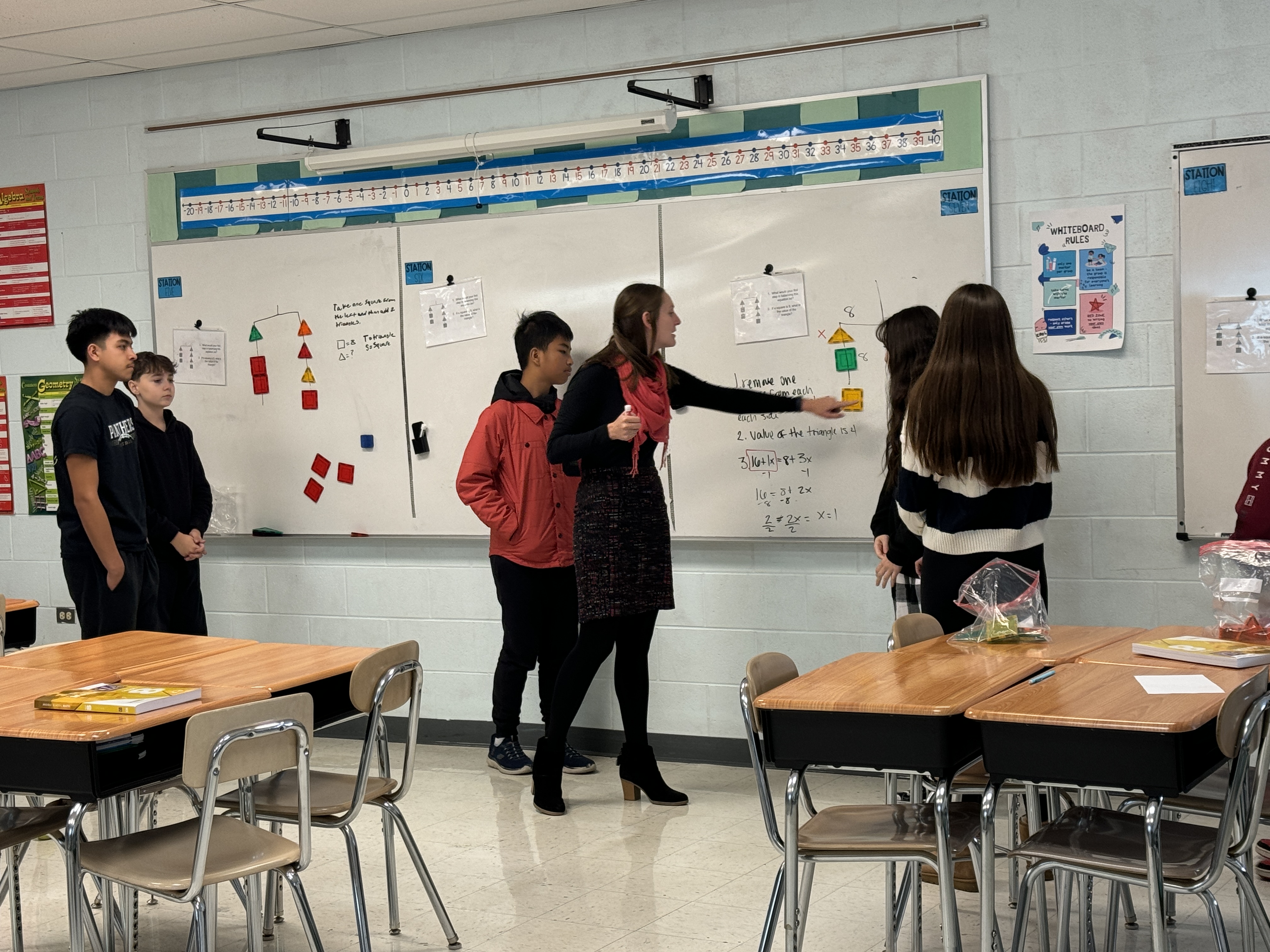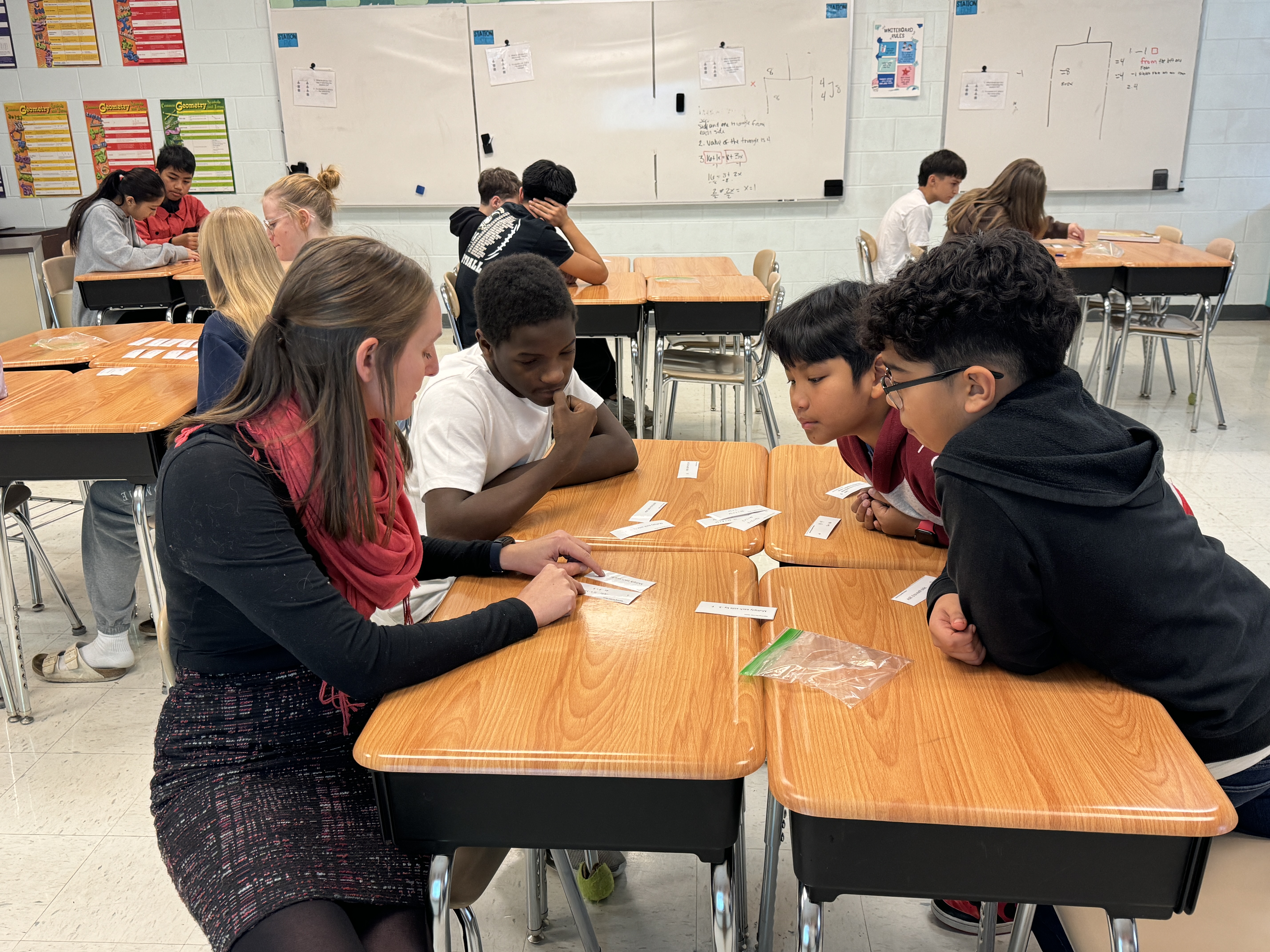At the top right of the newsletter, you will find a button to translate this message into your preferred language.
En la parte superior derecha del boletín, encontrarás un botón que te permitirá traducir este mensaje a tu idioma preferido.
في أعلى يمين النشرة الإخبارية، ستجد زرًا يتيح لك ترجمة هذه الرسالة إلى لغتك المفضلة.
Newsletter pan khaan tang ah, na duh mi holh ah na thu thuhna kong a sim khawh ding i button pakhat na hawng khia a si.

CUSD 200
CUSD 200 Newsletter
Inclement Weather Reminders
With the winter months upon us, CUSD 200 wants to take this opportunity to remind families about our protocol for inclement weather. Staff, students, families, and community members will be notified of any changes to the school day (e.g., delayed start, E-Learning day, early dismissal) via email, text, phone call, CUSD 200 social media, and website alerts.
We encourage all stakeholders to confirm that their contact information is accurate in our information systems—ParentVue (for parents) and iVisions (for staff). Having correct information in these systems ensures you receive the most up-to-date notifications from the district on inclement weather days.
In the event CUSD 200 calls an E-Learning Day due to inclement weather, students in grades 1-12 will follow the E-Learning schedule available here. This plan outlines the schedule and expectations for remote learning should there be a need to close schools due to extreme weather conditions. On E-Learning days, instruction begins online for students at 9:00 a.m. All students should log in to Google Classroom to access assignments and the Meets link. Kindergarten and early childhood students will follow the plan communicated by their teacher.
Thank you for your attention to these important updates. By working together, we can ensure a smooth and safe experience for our students and families during the winter season. If you have any questions about our inclement weather protocols or E-Learning plans, please don’t hesitate to reach out to your child’s school or the district office.
Staff Spotlight: Dr. John Disanza and Mrs. Traci Burnham

Dr. John Disanza

Traci Burnham
This week’s Staff Spotlight features Dr. John Disanza and Mrs. Traci Burnham, who are members of the district’s student services team. Together, they work tirelessly to support our students, staff, and families in a multitude of ways.
How long have you been in CUSD 200?
Traci - I have worked in CUSD 200 for 24 years, and began as a social worker at Wheaton Warrenville South High School in 2001. Today, I serve in a few different roles including District Emotional Wellness Coordinator, Social Work Department Chair, McKinney Vento Liaison, and School Social Worker at Wheaton North High School.
John - I have worked in CUSD 200 for 21 years, and began as a school psychologist at Wheaton North High School in 2004. I currently serve as the School Psychology Department Chair, and coordinator of Multi-Tiered Systems of Support (MTSS) and 504 Accommodation/Special Education Technical Support.
What is your current role and what does it entail?
Traci - I have various roles within the district. I am the district Emotional Wellness Coordinator, in which I support the Emotional Wellness Coordinators at our secondary schools. In this role, I develop and implement programs, tools and resources in our buildings that support student emotional well-being.
I also serve as the Social Work Department Chair, in which I oversee the team of social workers across the district. In this position, I provide social workers with support and training to help them meet the needs of all students in their school, in proactive ways and during times of crisis.
I am CUSD 200’s McKinney Vento Liaison, which supports our students and families who experience housing insecurity. In this role, I collaborate with the Regional Office of Education to ensure the rights of our students are being protected, and I work directly with families to provide information and resources in a time of need.
Lastly, I am fortunate to serve as a social worker at Wheaton North High school, working directly with students, their families and the staff. In this role, I do whatever is needed to provide support/counseling, teaching social skills, finding food, clothing and housing resources and intervening in crisis situations. Social workers do a lot of different tasks; the role is multi-faceted and you never know what each day will bring.
John - I have served as the School Psychology Department Chair for the past 15 years. In this role, I support early childhood through transition school psychologists across the district. I provide consultation and professional development by keeping current with the latest research in the field.
I have also worked in various roles supporting general education as well as the special education areas. As such, I have coordinated Multi-Tiered Systems of Support (MTSS) and interventions in grades K-8. MTSS is a framework for school improvement that guides and integrates daily practices to improve outcomes for all students through a continuum of academic, social and emotional, and behavioral supports.
I also support our Section 504 accommodation and special education teams through training on procedures, eligibility, and paperwork. During my time as the department chair, I completed a doctoral degree in school psychology to further my knowledge to continue to develop as a leader in the district.
What is your background in student services, and what made you pick this career path?
Traci - Throughout high school and college, I had jobs working as an assistant in a mental health agency and in the early childhood program at the university level. I wanted to find a career that would allow me to work with children in a school setting and also support mental health concerns. This led me to the profession of school social work.
John - From an early age, I also wanted to help people. In high school, I was trained as a peer counselor. During two of my college summers, I worked as a camp counselor. After completing my undergraduate degree in psychology, I completed my masters in educational psychology and a specialist degree in school psychology. During college and graduate school, I worked at a residential treatment facility for children from ages 3- 21. During my time at the residential treatment facility, I was inspired by the work of school psychologists and their ability to make a positive impact on the lives of children.
What are the similarities and differences of your roles as social worker and psychologist?
While school social workers and school psychologists both work to support student well-being, our roles have distinct focuses. Social workers often address the broader social and environmental factors that impact a student's life. This might include issues like poverty, homelessness, or family conflict.
School psychologists, on the other hand, specialize in psychological assessment, mental health interventions, and educational support. They work collaboratively with staff on academic interventions and behavior/ social emotional support that allow students to better access their learning.
Together, we form a comprehensive support team, addressing a wide range of student needs and working to create positive learning environments for all.
What are your roles and how do you support the District in utilizing the PREPaRE model?
We've both been active members of the district's Safety Committee for many years. As the district made the decision to adopt the PREPaRE model (a comprehensive framework for safety protocols, interventions, and crisis response), one thing that was discussed was how to ensure that the district would continue to keep necessary staff trained each year. The decision was made that both of us would become certified PREPaRE trainers, which entailed a week-long training session in Washington DC. One of the benefits of being trainers means that we have access to up-to-date crisis intervention resources as well as connections with districts across the country who also use this model. Since best practices around physical, emotional and psychological safety are continuously evolving, as trainers we’re able to bring to the district the most current practices.
In addition to being trainers, we’re both members of the district’s crisis team. As part of the crisis team, we collaborate with school teams when there are crisis situations that require extra support. Sometimes, that support is merely consultation and collaboration. Other times, that support means deploying our PREPaRE trained student services staff across the district to the buildings in need of support. We support our student services staff in selecting the appropriate interventions as outlined in PREPaRE and implementing those interventions with fidelity. And a final important role we have, is to take care of our caregivers. This means we look out for our student services staff across the district and help them manage the stress following a crisis situation.
By utilizing the PREPaRE model, we're committed to creating safe and supportive learning environments for all students.
Classroom Close-Up
We are beginning a new series called "Classroom Close-Up" where we take a look at what students are currently learning in the classroom. In each Newsletter, we will feature one one class or grade level.
This week, we stopped by Katie Anderson's 8th Grade Math Class at Monroe Middle School, where students were working on solving equations with balanced moves. During the lesson, students continued to develop their communication and collaboration skills while working with peers to determine moves that would simplify equations.
In the first activity of the lesson, students used Magna-Tiles on vertical learning surfaces to visualize equations through hanging diagrams, write equations for the given diagram, and problem-solve steps to simplify.
In the next activity, students were paired with new partners and given two sets of cards. One set displayed two equations and the other displayed steps used to simplify an equation. Students had to work together to determine which cards matched.
In the final activity, students met with new partners at the whiteboard to explore different methods to solve similar algebraic equations.
We want to thank Mrs. Anderson, Math Coach Kelly Klenck, and the students for showing us what an engaging and collaborative math lesson looks like at the middle school level.

Activity 1

Activity 1

Activity 2

Activity 3
CUSD 200 Staff/Student Celebrations
Pack the Gym Night Recap
On December 3, CUSD 200's Flying Tigers, comprised of students from the Transition Center, Wheaton Warrenville South and Wheaton North high schools, played in a great game that "Packed the Gym" for a great cause! The team's new Mascot also joined in for a great community event.
While fans watched the athletes sportsmanship, positive attitudes and teamwork on the court, they raised $860 for the Wheaton Warrenville Christmas Sharing Program.


Hubble's Fall Production of Transyl-Mania
This November, over 115 students at Hubble Middle School brought their fall play, Transyl-Mania, to life. The Drama Department at Hubble is a great example of how theatre fosters creativity, builds lifelong skills, boosts confidence, and encourages collaboration among students. Those involved devoted countless hours before and after school, pouring passion and enthusiasm into every detail of the production. From designing intricate costumes and styling 35 wigs to creating extensive makeup designs and constructing a breathtaking two-story set.
Transyl-Mania was directed by Ariel Fogg, with set building by Larry Monaco, props and painting by Kaitlyn Stoll, lights, sound, and music managed by Edgie Quetua, Amy Fountain assisted with all production needs, and 8th graders Payton Mowinski and Kendall Woods were the student directors for the show.






DuKane Conference Art Show Award Winners
Wheaton North and Wheaton Warrenville South high school students were award winners at the DuKane Conference Art Show on Wednesday, November 20! Students competed in a number of categories including painting, digital photography, analog photography, drawing, mixed media/printmaking, graphic design, digital illustration, time arts, sculpture/jewelry, and ceramics glass. To view a list of winners and pictures of the artwork, click here.
Congratulations to the following students who were chosen to have their art selected for this art exhibition:
Ceramics and Glass:
Klyde Pekarek (Wheaton Warrenville South) - Honorable Mention
Time Arts:
James Kurinsky (Wheaton Warrenville South) - First Place
Corinne Benoist and Mads Lee (Wheaton Warrenville South) - Third Place
Sculpture and Jewelry:
Noah Cho (Wheaton North) - First Place
Digital Photography:
Abudy Bashier (Wheaton North) - First Place
Genessa Shankman (Wheaton North) - Honorable Mention
Robin Leonard (Wheaton Warrenville South) - Honorable Mention
Analog Photography:
Eli McLaughlin (Wheaton Warrenville South) - First Place
Max Stewart (Wheaton North) - Second Place
Painting:
Amanda Hanson (Wheaton North) - Honorable Mention
Grey Wilson (Wheaton North) - Honorable Mention
Lucie Hirsch (Wheaton North) - Honorable Mention
Drawing:
Mylene Choi (Wheaton Warrenville South) - First Place
Transition Program Pop-Up Shop
Students at the Transition Program work on their vocational skills each week. Part of this work includes creating items for the school store and pop up shops within the district.
This week, they visited the School Service Center. Students greeted their customers, helped show off the items they made, worked on their money skills by calculating totals and change, and wished their customers a great day.
Look for future Pop-up Shops on the CUSD 200 Transition Center Facebook page.

Fourth Grade National Park Project at Lincoln
Lincoln Elementary School 4th grade students provided a guided tour of some of the most beautiful National Parks in the United States for their VIP's. Students worked in small groups to create a visual of their park and provide information on what it has to offer. This was all done as a cooperative research project that began with a visit from a real National Park Ranger!



CUSD 200 Important Dates
Coffee With the Board at the School Service Center - December 7
Board of Education Meeting at Edison Middle School - December 11
Winter Break (No School) - December 23 - January 3
Institute Day (No School) - January 6
